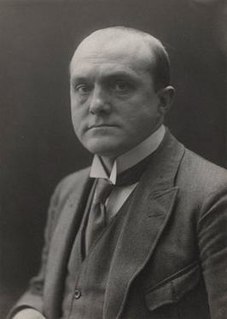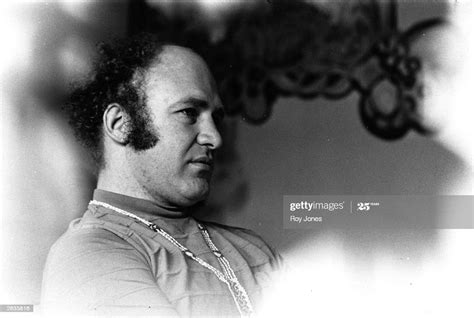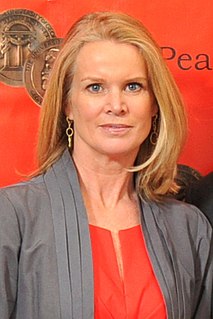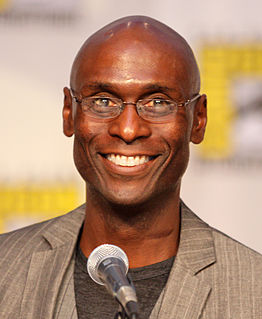Top 1200 Often Can Quotes & Sayings - Page 12
Explore popular Often Can quotes.
Last updated on December 20, 2024.
It's not often you find yourself writing about a game that you haven't seen one kick of. But it's not often that the favourites lose 5-0 in one of their most important matches of the season. But all things considered - the difference between expectations of success and margin of victory, the fact of Strachan's debut, the injury to Chris Sutton, the joy it will bring Rangers fans, and the potential financial loss of going out of Europe completely in the first week in August - it is hard to remember the last defeat this bad for any team.
I'm often a little perplexed, when I read a review of a book, by the quotes that are pulled out as evidence of excellent prose. I don't think great novels are necessarily composed of great prose, or that there's a correlation between beautiful prose and the quality of a work of fiction. A really good, interesting novel will often let a little ugliness get into its words - to create a certain effect, to leave the reader with a certain sense of disorientation.
LeBron doesn't have any weaknesses, or he doesn't have a glaring weakness. So you've got to pick up on the smaller things to try to make him uncomfortable. Like knowing which side he likes to shoot threes off the dribble, which side he likes to drive. One side he'll drive left more often, and the other side he'll drive right more often.
How do we remember to remember? That's a question I've asked myself often since my time on Duma Key, often in the small hours of the morning, looking up into the absence of light, remembering absent friends. Sometimes in those little hours I think about the horizon. You have to establish the horizon. You have to mark the white. A simple enough act, you might say, but any act that re-makes the world is heroic. Or so I've come to believe.
What more degrades woman today than that she so often seeks marriage as a support? Why is the holy sacrament of love, the sanctity of the family state, so often prostituted and destroyed, but because marriage is entered upon as a necessity or a convenience? And what can so place marriage on its only true basis of mutual love, mutual fitness, mutual esteem, as for woman to make herself independent of it as a mere means of subsistence?
When there is pressure for leaders to respond to problems or crises, they often simply intensify their efforts in their particular defined sphere of activity - even if that's not relevant to the real problem. To do otherwise requires taking on entrenched practices and asserting power in areas where it often will not be well received. And leaders tend to see major crises more as threats to their own position rather than as systemic challenges for the societies that they govern or the institutions that they manage.
One, which I mention several times elsewhere, is the need for patience if big profits are to be made from investment. Put another way, it is often easier to tell what will happen to the price of a stock than how much time will elapse before it happens. The other is the inherently deceptive nature of the stock market. Doing what everybody else is doing at the moment, and therefore what you have an almost irresistible urge to do, is often the wrong thing to do at all.
When you put an image on the newsstand, you have literally two seconds to get somebody's attention. Often, with many of the subscriber covers, they're far away and the thing that catches your attention more than anything on the newsstand is eye contact.Because you've got a smaller image, and sometimes a darker image, often it doesn't stand out, as much as a traditional newsstand cover, which is why we continue to do right for newsstand.
Do you often feel like parched ground, unable to produce anything worthwhile? I do. When I am in need of refreshment, it isn't easy to think of the needs of others. But I have found that if, instead of praying for my own comfort and satisfaction, I ask the Lord to enable me to give to others, an amazing thing often happens - I find my own needs wonderfully met. Refreshment comes in ways I would never have thought of, both for others, and then, incidentally, for myself.
I am an idealist. I often feel I would like to be an artist in an ivory tower. Yet it is imperative that I speak to people, so I must desert that ivory tower. To do this, I am a journalist - a photojournalist. But I am always torn between the attitude of the journalist, who is a recorder of facts, and the artist, who is often necessarily at odds with the facts. My principle concern is for honesty, above all honesty with myself.
Sociopaths are often extremely charming. They are people who are better than you and me at charming people, at being charismatic. I've heard this more often than I can count: "He was the most charming man I ever met," or, "She was the sexiest woman I ever met," or, "The most interesting person I ever met . . ."
Then came the gadgeteer, otherwise known as the sporting-goods dealer. He has draped the American outdoorsman with an infinity of contraptions, all offered as aids to self-reliance, hardihood, woodcraft, or marksmanship, but too often functioning as substitutes for them. Gadgets fill the pockets, they dangle from neck and belt. The overflow fills the auto-trunk and also the trailer. Each item of outdoor equipment grows lighter and often better, but the aggregate poundage becomes tonnage.
How often do we tell our own life story? How often do we adjust, embellish, make sly cuts? And the longer life goes on, the fewer are those around to challenge our account, to remind us that our life is not our life, merely the story we have told about our life. Told to others, but — mainly — to ourselves.
If there is one fact we really can prove, from the history that we really do know, it is that despotism can be a development, often a late development and very often indeed the end of societies that have been highly democratic. A despotism may almost be defined as a tired democracy. As fatigue falls on a community, the citizens are less inclined for that eternal vigilance which has truly been called the price of liberty; and they prefer to arm only one single sentinel to watch the city while they sleep.
Remember, how often the great art of the past didn't look great at first, how often it didn't look like art at all; how much easier it is, decades or centuries later, to adore it, not only because it is, in fact, great but because it's still here; because the inevitable little errors and infelicities tend to recede in an object that's survived the War of 1812, the eruption of Krakatoa, the rise and fall of Nazism.
Realizing how often ingenious speculation in the complex biological world has led nowhere and how often the real advances in biology as well as in chemistry, physics and astronomy have kept within the bounds of mechanistic interpretation, we geneticists should rejoice, even with our noses on the grindstone (which means both eyes on the objectives), that we have at command an additional means of testing whatever original ideas pop into our heads.
Often the answer to our prayer does not come while we’re on our knees but while we’re on our feet serving the Lord and serving those around us. Selfless acts of service and consecration refine our spirits remove the scales from our spiritual eyes and open the windows of heaven. By becoming the answer to someone’s prayer we often find the answer to our own.
According to my observations, mankind are among the most easily tamable and domesticable of all creatures in the animal world. They are readily reducible to submission, so readily conditionable (to coin a word) as to exhibit an almost incredibly enduring patience under restraint and oppression of the most flagrant character. So far are they from displaying any overweening love of freedom that they show a singular contentment with a condition of servitorship, often showing a curious canine pride in it, and again often simply unaware that they are existing in that condition.
It's really important to have life strategies and part of that is sort of knowing where you want to go so you can have a map that helps you to get there. And the traditional way tells us oh we get into school and someone else advises us, helps us, but that often does not work for African Americans female and male. Because what works for the dominant culture often does not work for us.
So often we think that Allah only tests us with hardships, but this isn't true. Allah also tests with ease. He tests us with na`im (blessings) and with the things we love, and it is often in these tests that so many of us fail. We fail because when Allah gives us these blessings, we unwittingly turn them into false idols in the heart.
Hollywood parties not only confuse me, but they often disillusion me. The disillusion comes when I meet a movie star I’ve been admiring since childhood. I always thought that movie stars were exciting and talented people full of special personality. Meeting one of them at a party I discover usually that he (or she) is colorless and even frightened. I’ve often stood silent at a party for hours listening to my movie idols turn into dull and little people.
Often, when following the trail which meanders over the hills, I pull myself up in an effort to encompass the glory and the grandeur which envelops the whole horizon. Often, when the clouds pile up in the north and the sea is churned with white caps, I say to myself: "This is the California that men dreamed of years ago, this is the Pacific that Balboa looked out on from the Peak of Darien, this is the face of the earth as the Creator intended it to look.
In fact, the answers that religion, as we have come to know it, provides to the question of human worth have played so dominant a role in the preceding centuries that believers often cannot conceive how non-believers can muster sufficient commitment to their own lives to get out of bed each morning, let alone the ethical wherewithal to regard others as deserving of moral regard. Once one "comes out" as an atheist, these are the inquisitions to which one is often subjected.
Often, very often, I am alone. My studio in Amsterdam, (Beckmann lived in the center of Amsterdam during World War 2.) an enormous old tobacco storeroom is again filled in my imagination with figures from the old days and from the new, like an ocean moved by storm and sun and always present in my thoughts. Then shapes become beings and seem comprehensible to me in the great void and uncertainty of the space which I call god.
I often ask myself: "What would Theodore Roosevelt do?" One can never know, of course. The ultimate contribution of consequential leaders is often their capacity to reframe issues in novel ways. That said, his leadership engaged, at a foundational level, whether the American "national character" would accept decline and mediocrity, or would go all-in for leadership and excellence. Amid the myriad of otherwise disconnected issues before us, that choice is emerging yet again.
Very often, or perhaps more often, and even in very good collections - even in some of the best collections ever written, I would argue - it's because our "voicier" writers hew so closely to one given set of dictional tics that we as readers can't read the books all the way through in a single sitting, because if we did, the stories and their narrators would all start to bleed together.
When young black men reach a certain age - whether or not there is incarceration in their families - they themselves are the target of police stops, interrogations, frisks, often for no reason other than their race. And, of course, this level of harassment sends a message to them, often at an early age: No matter who you are or what you do, you're going to find yourself behind bars one way or the other. This reinforces the sense that prison is part of their destiny, rather than a choice one makes.
We like to pretend that our generous impulses come naturally. But the reality is we often become our kindest, most ethical selves only by seeing what it feels like to be a selfish jackass first. It's the reason... we have to get burned before we understand the power of fire; the reason our most meaningful relationships are so often those that continued beyond the very juncture at which they came the closest to ending.
Putting my hand in someone else’s has always been my definition of happiness. Before I fall asleep, often - in that small struggle not to lose consciousness and go into the greater world - often, before I get up the courage to go into the vastness of sleep, I pretend that someone has my hand in theirs, and then I go, go to that enormous absence of form that is sleep. And when even after that I don’t have courage, I dream.
Schoolchildren all over America are told to write to authors-often to authors whom they have never before heard of, whose work they are to young to understand in the least, and often in letters which are almost illiterate. If children are to be taught to respect the work of American poets I think some better way might be found to do so- some way which would not make such an inconsiderate demand on the author's time.
At the conscious approach of death, faith in the Biblical Religion, with its God and Christ and written Revelation, never weakens, but almost or quite always strengthens, and very often advances to a splendid assurance; while unbelief under the same circumstances never strengthens, but almost or quite always weakens and falters, and very often fails utterly.
God in His answers to prayer often says "Yes." Sometimes He says "Wait." Often He says "No." In any case, His will is done, and true faith is to believe that what happened has happened for the best. If one does not take that attitude, he is setting his personal desire against the wisdom of God. Oftentimes we confuse with faith merely that which we desire.
The script is a starting point, not a fixed highway. I must look through the camera to see if what I've written on the page is right or not. In the script, you describe imagined scenes, but it's all suspended in mid-air. Often, an actor viewed against a wall or a landscape, or seen through a window, is much more eloquent than the lines you've given him. So then you take out the lines. This happens often to me and I end up saying what I want with a movement or a gesture.
If you choose not to act, you have little chance of success. What’s more, when you choose to act, you’re able to succeed more frequently than you think. How often in life do we avoid doing something because we think we’ll fail? Is failure really worse than doing nothing? And how often might we actually have triumphed if we had just decided to give it a try?
We can create the sensation of community through the accrual of actions, and that's often the clichéd way that storytelling is talked about, as someone taking a solo, and that's great for lots of reasons. But I don't really like to feel like I'm forced to listen to it in a certain way, or that there is one master reading of performance. I think what we want from performance is multiplicity, which is lots of ways in and through it, because it's for lots of people, and it was created by lots of people, often.
I learned early on that war forms its own culture. The rush of battle is a potent and often lethal addiction, for war is a drug, one I ingested for many years. It is peddled by mythmakers- historians, war correspondents, filmmakers, novelists, and the state- all of whom endow it with qualities it often does possess: excitement, exoticism, power, chances to rise above our small stations in life, and a bizarre and fantastic universe that has a grotesque and dark beauty.
Too often, executive compensation in the U.S. is ridiculously out of line with performance. That won't change, moreover, because the deck is stacked against investors when it comes to the CEO's pay. The upshot is that a mediocre-or-worse CEO - aided by his handpicked VP of human relations and a consultant from the ever-accommodating firm of Ratchet, Ratchet and Bingo - all too often receives gobs of money from an ill-designed compensation arrangement.
Often in companies, you'll see tensions between sales and marketing. Sales people will want to give discounts to clients because they often get paid a commission based on how much they sell. So they're always pushing to give discounts because that will increase sales. Marketing, however, is judged by overall profitability.
Notes are tricky in an audition, because I find, more often than not, my instinct is right. If they have a preconceived notion about the role and it goes against my instinct, unless it makes sense to me, it often throws off what I'm trying to do. Though sometimes they have an insight that I don't because they've been living with the script. I don't have one feeling or another about notes, but it is always a little bit of a red alert when I get one in an audition.
We all know of people who thought they could to it (whatever “it” is) tomorrow. We have all procrastinated on such a way, and often to our personal regret. It happens time and again, putting off things that we convince ourselves might be better, more meaningful, more appropriate for another time. So often that better time either never comes or really isn’t better or more appropriate after all. And then, sadly, the window of opportunity -to do something great- closes.
I grew up listening to my grandfather's stories of our musical past. He would often talk about the orchestras that played at concerts and the musicians who played on Sunday evenings on street corners. By the time I grew up in the '80s, all of this was a thing of the past. I lived vicariously through his stories and often wondered what it would have felt like to have been part of his generation.
In science it often happens that scientists say, 'You know that's a really good argument; my position is mistaken,' and then they would actually change their minds and you never hear that old view from them again. They really do it. It doesn't happen as often as it should, because scientists are human and change is sometimes painful. But it happens every day. I cannot recall the last time something like that happened in politics or religion.
I feel somewhat privileged because I often feel very sorry for kids. I often feel very sorry for 20-year-olds and teens who grew up with the internet and have grown up completely connected because, for me, people like me know what it was to struggle, but it wasn't a struggle. It was great! It was fantastic. The thrill of the hunt.
The language of the culture also reflects the stories of the culture. One word or simple phrasal labels often describe the story adequately enough in what we have termed culturally common stories. To some extent, the stories of a culture are observable by inspecting the vocabulary of that culture. Often entire stories are embodied in one very culture-specific word. The story words unique to a culture reveal cultural differences.
As a composer, I believe that music has the power to inspire a renewal of human consciousness, culture, and politics. And yet I refuse to make political art. More often than not political art fails as politics, and all too often it fails as art. To reach its fullest power, to be most moving and most fully useful to us, art must be itself.
The absolutist lays down the law, but the relativist hears only roaring and bawling. Or, when the relativist voice, as it is heard from philosophers such as Nietzsche or James, itself starts to grate and sounds shrill, as it often does, and when the relativist then offers concessions, the absolutist hears only insincerity. The war of words can often turn into a dialogue of the deaf, and this too if part of its power to arouse outrage and fury.
So often we experience things in life, and yet never see the connections between them. When we are given hardship, or feel pain, we often fail to consider that the experience may be the direct cause or result of another action or experience. Sometimes we fail to recognize the direct connection between the pain in our lives and our relationship with Allah SWT
Human relationships with predators have always been thorny. Predators are the first creatures our kind purposely eradicates. Too often, people feel humans are and should be in control; we are enraged to discover this is not true. And when other creatures share our appetites and kill our livestock (often animals we were raising to kill, ourselves), we call them vandals and murderers...Predators are the most persecuted creatures on Earth.
O sweet spontaneous earth how often have the doting fingers of prurient philosophers pinched and poked thee ,has the naughty thumb of science prodded thy beauty .how often have religions taken thee upon their scraggy knees squeezing and buffeting thee that thou mightest conceive gods (but true to the incomparable couch of death thy rhythmic lover thou answerest them only with spring)
I think younger artists are often "students" of the rock press. They have their favorite rock star interviews and know how they're supposed to act. But I find that time helps a lot. If you have enough time you can sort of break that down just by being a normal person. And then they realize the interview isn't just a performance, and they can actually speak to you. I often try to get people into a space where they're not over-thinking what they're talking about and instead they're speaking emotionally, from within their experience.


























































